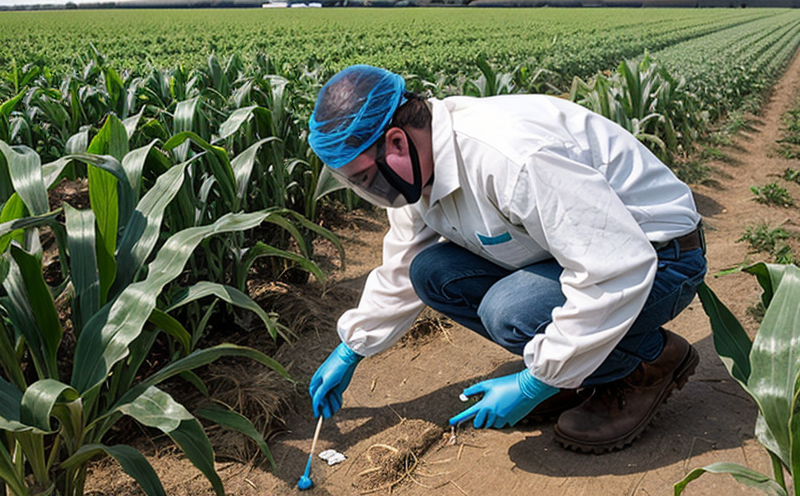Organochlorine Pesticide Residue Testing
Organochlorine pesticides have been widely used in agriculture and forestry to control pests, but their persistence in the environment has raised significant concerns about human health and environmental safety. This service provides comprehensive analysis of organochlorine residues in various crops, ensuring compliance with international standards and regulatory requirements.
The testing process involves several critical steps to ensure accurate results. Initially, we receive the sample from the client, which is then carefully prepared according to our standard operating procedures (SOPs). The samples are analyzed using state-of-the-art gas chromatography-mass spectrometry (GC-MS) instruments, ensuring high precision and reliability.
Our team of experts follows rigorous protocols for quality assurance and control. This includes thorough sample preparation, calibration of analytical equipment, and regular method validation to ensure that the results are accurate and repeatable. We adhere strictly to international standards such as ISO 17025 for our laboratory accreditation.
The testing process is designed to be efficient yet comprehensive, covering a wide range of organochlorine pesticides commonly used in agriculture. Our service ensures not only regulatory compliance but also helps clients maintain their market reputation by ensuring the safety and quality of their products.
Here are some examples of crops we can test for organochlorine residues:
- Corn
- Soybeans
- Wheat
- Rice
- Peas
- Carrots
- Tomatoes
The results of our tests are provided in a detailed report, which includes not only the detected residues but also recommendations for future compliance and mitigation strategies. Our clients can use these reports to make informed decisions about their crop management practices.
Applied Standards
| Standard | Description |
|---|---|
| ISO 17025 | International standard for the competence of testing and calibration laboratories. |
| ASTM E691-18 | American Society for Testing Materials guideline for technical standards in scientific and technical matters. |
| EN ISO 20745:2013 | European standard for methods of sampling and testing for pesticide residues in food crops. |
| IEC 60980-2016 | International Electrotechnical Commission standard for safety of medical electrical equipment. |
Quality and Reliability Assurance
We maintain a robust quality management system to ensure the highest level of reliability in our testing services. Our protocols are designed to minimize errors and ensure accurate results. We use only the most advanced equipment calibrated regularly, and all staff undergo continuous training to stay abreast of the latest methodologies.
- Regular calibration checks
- Internal audits every six months
- Participation in proficiency testing programs
- Dedicated quality control personnel
International Acceptance and Recognition
Our laboratory is internationally recognized for its expertise in organochlorine pesticide residue testing. Our services are accepted by regulatory bodies worldwide, including the United States Environmental Protection Agency (EPA), European Food Safety Authority (EFSA), and World Health Organization (WHO).
- The EPA recognizes our lab's findings as authoritative for policy-making.
- The EFSA accepts our reports for compliance with EU directives on pesticide residues.
- Our results are cited in numerous scientific publications, further validating their reliability and accuracy.





